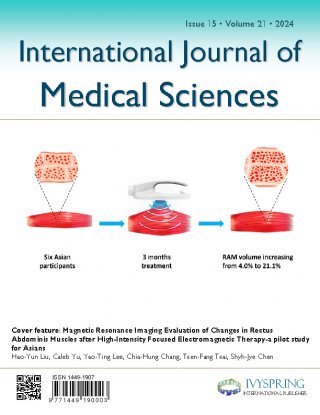Association of oxidative balance score with helicobacter pylori infection and mortality in the US population
IF 3.2
3区 医学
Q1 MEDICINE, GENERAL & INTERNAL
引用次数: 0
Abstract
Background: Limited research has examined the association between Oxidative Balance Score (OBS) and mortality, particularly in individuals with Helicobacter pylori (H. pylori) infection. This study investigates the correlation between OBS and H. pylori infection and their impacts on all-cause mortality within a cohort of individuals, considering both infected and uninfected individuals./nMethods: Data from the National Health and Nutrition Examination Survey (NHANES) 1999-2018, comprising 4,532 participants, were analyzed. Logistic regression analyses assessed the relationship between H. pylori infection and relevant covariates. Cox regression and restricted cubic spline analysis evaluated the association between total OBS, lifestyle OBS, dietary OBS, and all-cause mortality in H. pylori-positive and -negative individuals./nResults: Restricted cubic spline modeling revealed a linear relationship between total OBS and all-cause mortality, particularly in H. pylori-negative patients. Total OBS, dietary OBS, and lifestyle OBS inversely correlated with H. pylori infection, even after adjusting for confounders. Higher dietary OBS was associated with decreased mortality risk exclusively in H. pylori-positive individuals, while lifestyle OBS was associated with mortality only in H. pylori-negative individuals. These findings underscore the complex relationships between OBS, H. pylori infection, and mortality, stressing the importance of infection status in assessing oxidative balance's impact on health./nConclusion: In this sample, higher OBS was associated with lower H. pylori infection risks. Dietary OBS correlated significantly with all-cause mortality in H. pylori-positive individuals, while lifestyle OBS was notably associated with mortality in H. pylori-negative participants. Further research is necessary to elucidate the underlying mechanisms and clinical implications of these findings.氧化平衡评分与幽门螺旋杆菌感染和美国人口死亡率的关系
背景:对氧化平衡评分(OBS)与死亡率之间关系的研究有限,尤其是对幽门螺杆菌(H. pylori)感染者。本研究调查了 OBS 与幽门螺杆菌感染之间的相关性,以及它们对感染和未感染人群全因死亡率的影响:分析了美国国家健康与营养调查(NHANES)1999-2018 年的数据,共有 4532 名参与者。逻辑回归分析评估了幽门螺杆菌感染与相关协变量之间的关系。Cox 回归和限制性立方样条分析评估了幽门螺杆菌阳性和阴性个体的总OBS、生活方式OBS、饮食OBS与全因死亡率之间的关系:限制立方样条模型显示,总OBS与全因死亡率之间存在线性关系,尤其是在幽门螺杆菌阴性患者中。总OBS、饮食OBS和生活方式OBS与幽门螺杆菌感染成反比,即使在调整了混杂因素后也是如此。较高的膳食OBS仅与幽门螺杆菌阳性者死亡风险的降低有关,而生活方式OBS仅与幽门螺杆菌阴性者的死亡率有关。这些发现凸显了OBS、幽门螺杆菌感染和死亡率之间的复杂关系,强调了感染状况在评估氧化平衡对健康影响时的重要性:在这一样本中,较高的氧化平衡与较低的幽门螺杆菌感染风险相关。饮食中的氧化还原酶与幽门螺杆菌阳性者的全因死亡率明显相关,而生活方式中的氧化还原酶与幽门螺杆菌阴性者的死亡率明显相关。有必要开展进一步研究,以阐明这些发现的潜在机制和临床意义。
本文章由计算机程序翻译,如有差异,请以英文原文为准。
求助全文
约1分钟内获得全文
求助全文
来源期刊

International Journal of Medical Sciences
MEDICINE, GENERAL & INTERNAL-
CiteScore
7.20
自引率
0.00%
发文量
185
审稿时长
2.7 months
期刊介绍:
Original research papers, reviews, and short research communications in any medical related area can be submitted to the Journal on the understanding that the work has not been published previously in whole or part and is not under consideration for publication elsewhere. Manuscripts in basic science and clinical medicine are both considered. There is no restriction on the length of research papers and reviews, although authors are encouraged to be concise. Short research communication is limited to be under 2500 words.
 求助内容:
求助内容: 应助结果提醒方式:
应助结果提醒方式:


